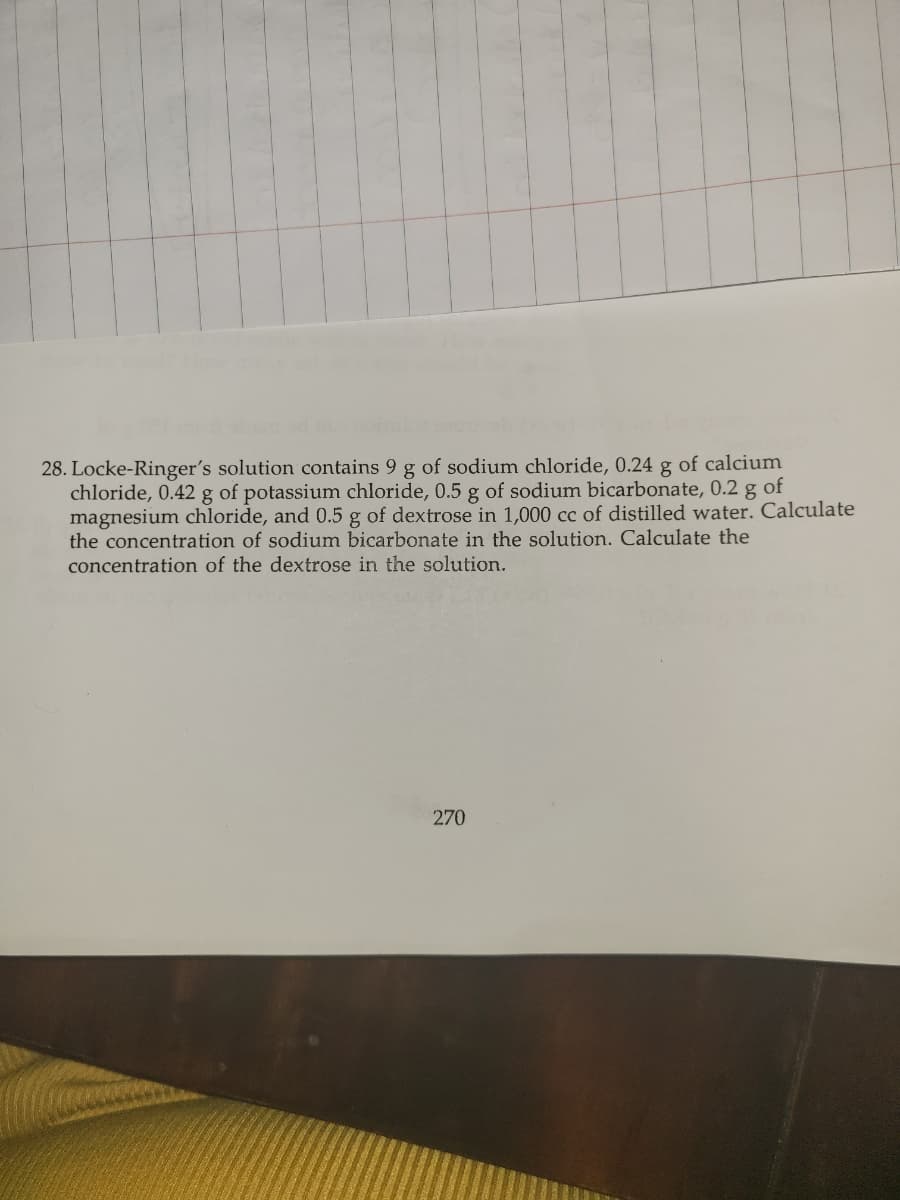28. Locke-Ringer's solution contains 9 g of sodium chloride, 0.24 g of calcium chloride, 0.42 g of potassium chloride, 0.5 g of sodium bicarbonate, 0.2 g of magnesium chloride, and 0.5 g of dextrose in 1,000 cc of distilled water. Calculate the concentration of sodium bicarbonate in the solution. Calculate the concentration of the dextrose in the solution.
28. Locke-Ringer's solution contains 9 g of sodium chloride, 0.24 g of calcium chloride, 0.42 g of potassium chloride, 0.5 g of sodium bicarbonate, 0.2 g of magnesium chloride, and 0.5 g of dextrose in 1,000 cc of distilled water. Calculate the concentration of sodium bicarbonate in the solution. Calculate the concentration of the dextrose in the solution.
Chapter10: Reconstitution Of Powdered Drugs
Section: Chapter Questions
Problem 8SST
Related questions
Question
The answer is 0.05% sodium bicarbonate, 0.05% dextrose
Please show your work

Transcribed Image Text:28. Locke-Ringer's solution contains 9 g of sodium chloride, 0.24 g of calcium
chloride, 0.42 g of potassium chloride, 0.5 g of sodium bicarbonate, 0.2 g of
magnesium chloride, and 0.5 g of dextrose in 1,000 cc of distilled water. Calculate
the concentration of sodium bicarbonate in the solution. Calculate the
concentration of the dextrose in the solution.
270
Expert Solution
Step 1
Locke- Ringer's Solution:
Ringer's solution is a mixture of salts mixed in water that is used to make an isotonic solution similar to an animal's bodily fluids. Sodium chloride, potassium chloride, calcium chloride, and sodium bicarbonate are commonly employed in Ringer's solution, with the latter being used to balance the pH. Chemical fuel sources for cells, such as ATP and dextrose, as well as antibiotics and antifungals, are possible additives.
A solution used in physiological investigations. To create 1000 ml, combine 9.0 g sodium chloride, 0.42 g potassium chloride, 0.24 g calcium chloride, 0.5 g sodium bicarbonate, 0.2 g magnesium chloride, 0.5 g dextrose, and pure water.
Step by step
Solved in 2 steps with 1 images

Recommended textbooks for you



